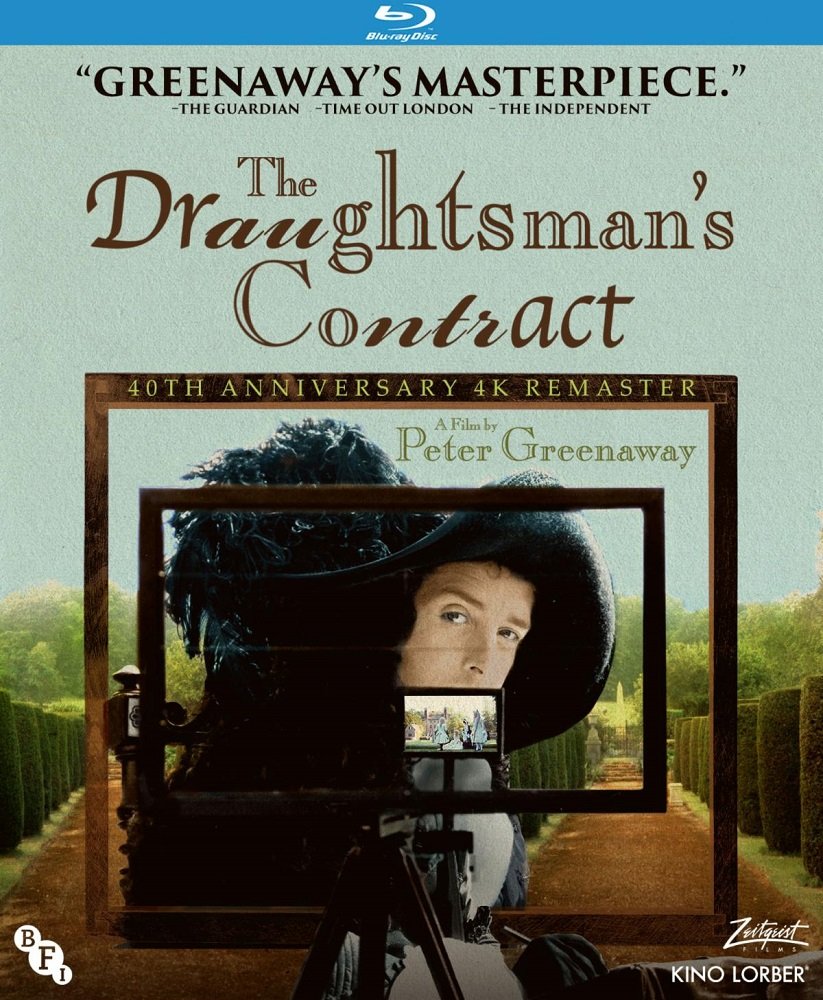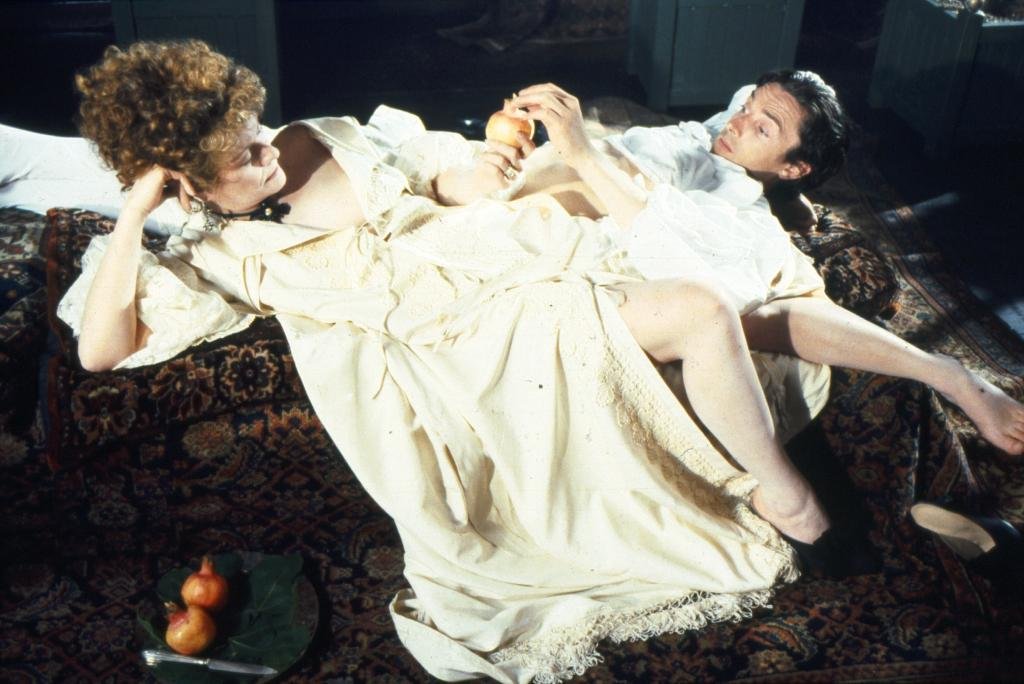IR HE Review: THE DRAUGHTSMAN’S CONTRACT [Kino Lorber]
The beginning structure of Peter Greenaway's ascent into arthouse films began with the film "The Draughtsman's Contract" [1982] made through the British Film Institute. Kino Lorber has released a 4K Remaster of the film to Blu Ray. Seeing this inherent based structure used with a 1:66 ratio is an interesting approach (and likely necessary but also not unlike Kubrick in many ways). The grain is undeniable but also are the textures both created by specific hues and natural light. The film is Greenaway's first foray into class and structure dictated by costumes, enviroment and speech. While this reviewer has likely seen the film before, this context usually with the clarity and grain from a 2022 Remaster by the BFI definitely adds to the structure. While some of the extras date back to 2003, their use is interesting. The commentary is just as pertinent as when it was recorded (which is not made clear). Greenaway is now in his early 80s but still working on new material as indicated by his IMDB page. The only time this reviewer ever spoke to him was in 1999 for his film "8 1/2" (which at some point hopefully will be redigitized in the interview archives).
But in his commentary here, he very much explains intent but also in other ways shows how the film can be viewed in a different way. One of the greater takeaways (since he was at the advance of digital editing tools with "Prospero's Books" [1991]) is how he feels about the use of new technologies. He says that one can't look back since films won't be made the same as Draughtsman's Contract ever again now or ever. The more advanced audience now needs the boundary pushed using the new technologies (which is interesting considering comments made by Scorsese and Nolan at points). This is of course very interesting considering this is a man who for many of his films pointed to the influence of painting and that theory. What is ironic is that it is he who is drawing the sketches in the film. Even though it seems they are burned in the end, Greenaway says in the commentary that they are very good photocopies(since he said he would never destroy them like that.
In terms of the film itself, because of its setting, it still rings true even in 2023 and even though it is shot in 1982 there is a certain timelessness to it (much like "Propero" and "The Cook, The Thief, His Wife & Her Lover" [1989] (which is considered his biggest success). This film ("The Draughtsman's Contract") again points to class but also the essence of the outsider who, more than often, falls prey to the upper class because of either naivete, innocence or ego. This is always inherent in all of Greenaway's films. Of course the essence of the observer still rings true as well and that is actually referenced in the dialogue. In terms of extras, there are a couple deleted scenes which are more painterly than anything else though the "Chairs" sequence shows the monotony of the approach of the draughtsman himself (though it would have slowed down the narrative and its inherent framing). There is an older introduction by Greenaway which more than reflects his commentary. He does make mention to the fact that the film can be looked at in certain ways, again as an Agatha Christie mystery (which he does mention in his commentary).
The B roll included shows a shooting day with sound and some interviews of the actors and Greenaway at work (and also some of the trepidatation he had since it was his first narrative outlay). It covers one crucial scene near the end of the film so its approval (which Greenaway likely thought was the best representation) was probably the only day the "EPK" crew came out. In the B roll, Greenaway speaks about his short films and where he came from. A few of those films are included. They are more industrial and many times not very clear. "Windows" is the most specified since it shows the human condition simply in how windows were used, especially in the context of suicide.
"Dear Phone" is the most obstantateous because, even though it evolves in what it is saying, its clarity in sound and visual are still at that point, unrefined. The re-release trailer of "Draughtman" is new but the essence of Rotten Tomatoes shouldn't have a bearing on the reverse perspective because the film was made for a different time. There is also a short Guardian conversation with composer Michael Nyman talking about the film. While he doesn't refer to specific movements in the film, he does talk about the mindset which does add context to the irony of the music. His recollection that Greenaway likely first heard him in concert when he did a reworking of some music from Don Giovanni at the National Theater in London does ring true. This Blu Ray release of "The Draughtman's Contract" uses many of the previous home release materials with the inclusion of the 4K remaster but for any fan of Greenaway and his approach, this is both and educational and welcome addition to any collection. A-
By Tim Wassberg


